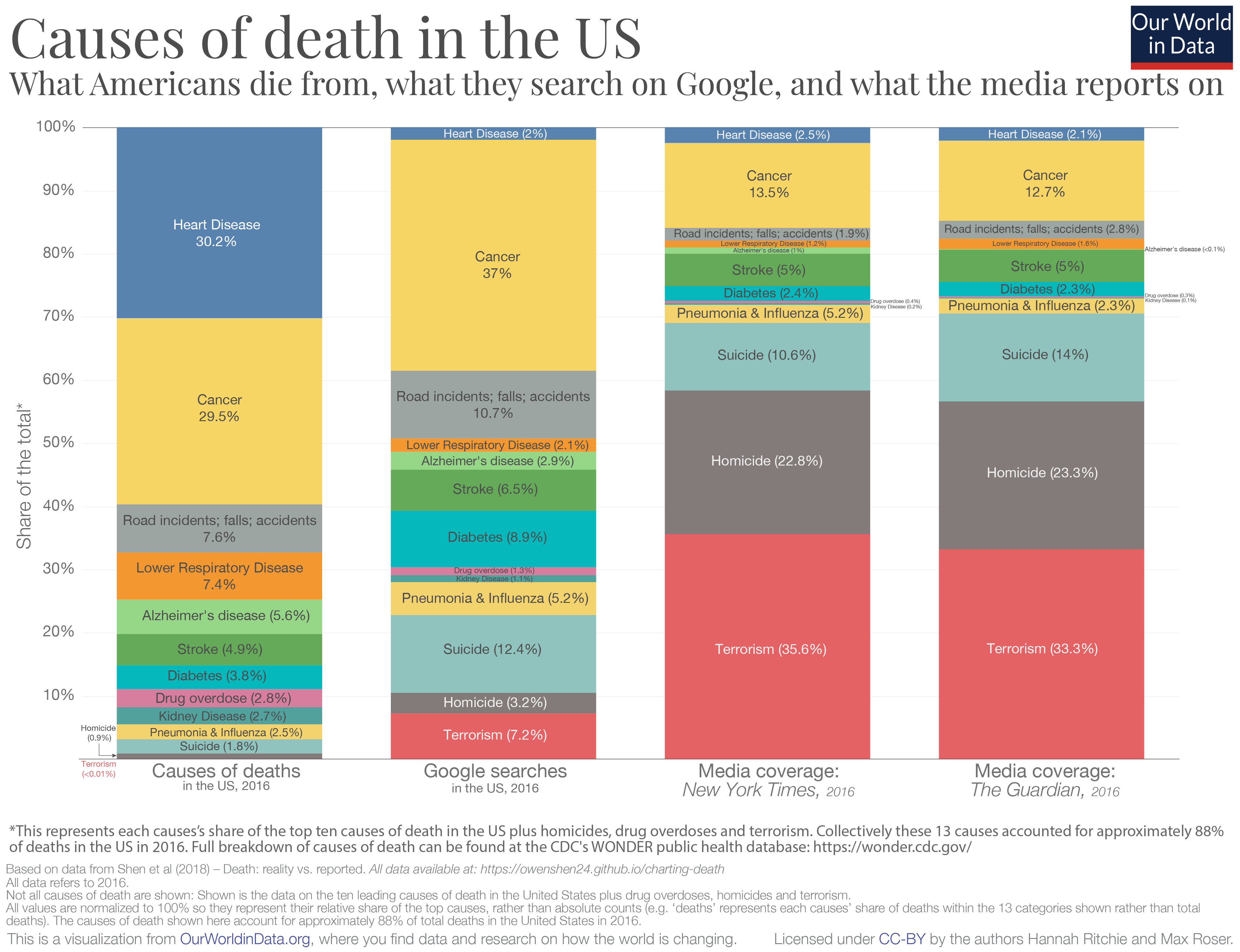Video Meep Killed the Radio Meep
by meep
I am super-tired.
(yes, I am still alive… at least while this is being typed)
Yes, my blogging has lagged. As I emailed to a reader recently, I have about 20 posts in draft, and I don’t know if I’m ever going to finish them.
So I’m gonna just serve up stuff I’ve made elsewhere, which isn’t actually blogging.
NOTE: DYING FROM THE USUAL THINGS AIN’T NEWS
First, I made a quick video on causes of death while I was in Baltimore, grading actuarial exams:
The stories I referenced:
More elderly Americans dying from falls
(Reuters Health) – Death rates from falls are rising among elderly Americans – and climbing fastest among seniors in their 90s, a U.S. study suggests.
Among all adults 75 and older, mortality from falls climbed 5.1 percent from 2000 to 2016, researchers report in JAMA. Death rates from falls rose the most – 6.4 percent – among people 95 and up.
“People can die after a fall for many reasons, which may include head trauma, internal bleeding, and complications of a bone fracture,” said study co-author Dr. Robin Lee of the U.S. Centers for Disease Control and Prevention in Atlanta.
“The latter may lead to hospitalization, immobility in bed, and respiratory or other infections, which can be fatal,” Lee said by email.
In my video, I note that I don’t think it’s actually the falls causing death in most of these cases, at least in ultimate cause.
Does the news reflect what we die from?
What we die from; what we Google; what we read in the news
So, what do the results look like? In the chart below I present the comparison.The first column represents each cause’s share of US deaths; the second the share of Google searches each receives; third, the relative article mentions in the New York Times; and finally article mentions in The Guardian.
The coverage in both newspapers here is strikingly similar. And the discrepancy between what we die actually
from and what we get informed of in the media is what stands out:
- around one-third of the considered causes of deaths resulted from heart disease, yet this cause of death receives only 2-3 percent of Google searches and media coverage;
- just under one-third of the deaths came from cancer; we actually google cancer a lot (37 percent of searches) and it is a popular entry here on our site; but it receives only 13-14 percent of media coverage;
we searched for road incidents more frequently than their share of deaths, however, they receive much less attention in the news;- when it comes to deaths from strokes, Google searches and media coverage are surprisingly balanced;
the largest discrepancies concern violent forms of death: suicide, homicide and terrorism. All three receive much more relative attention in Google searches and media coverage than their relative share of deaths.- When it comes to the media coverage on causes of death, violent deaths account for more than two-thirds of coverage in the New York Times and The Guardian but account for less than 3 percent of the total deaths in the US.
What’s interesting is that Americans search on Google is a much closer reflection of what kills us than what is presented in the media. One way to think about it is that media outlets may produce content that they think readers are most interested in, but this is not necessarily reflected in our preferences when we look for information ourselves.
While I said what I meant to say in the video embedded above, the authors in the immediately preceding video had to talk about google searches on preventing death and that more should be attempting to search on preventing death by heart disease.
So, I have some extremely biased opinions re: heart disease.
My own father died at age 38 of a heart attack. Even back in 1990, this was highly unusual. Yes, my dad shouldn’t have smoked and shouldn’t have been as fat as he was. But even with that, you don’t expect death by heart attack at age 38.
While I am very much on the side of the people wanting to extend human lifetime, I want to indicate that there is only so much you can control as an individual.
I am sorry not to have this at hand right now (I am EXTREMELY TIRED), but some research has shown very limited results from health interventions for those in developed nations. I will look it up more later, because it feeds into my own biases, so I need to be more critical of this than other items. (for reference: confirmation bias). Ask actual practicing doctors about their experience. I think that longevity can be improved for various scores, but it involves some extremely involved interventions, which almost nobody will do.
Quitting smoking? Absolutely has a huge impact on longevity.
But other changes… are less clear. And you may end up unhappier because you are not partaking in your local culture.
MARTIN CHUZZLEWIT, MY SECOND FAVORITE DICKENS NOVEL
To remind: my fave Dickens novel is Our Mutual Friend, his last completed novel, and my second-favorite is Martin Chuzzlewit.
Here are my Chuzzlewit-related videos:
WHERE IS MEEP?
As I type this, I am in New York. But this is to remind you of where I am online.
My YouTube channel for various ideas, etc., is here: Meep’s Math Matters.
I have another YouTube channel, but it’s mainly family videos: my personal YouTube channel
I’m on twitter about once a day: @meepbobeep.
I’m on facebook: Mary Pat Campbell
I’m on LinkedIn: Mary Pat Campbell
I have a webinar I’m doing on Tuesday, on errors in Excel. If that’s you’re bag – check it out!
If it’s not your bag… well, check out one of my links above!

